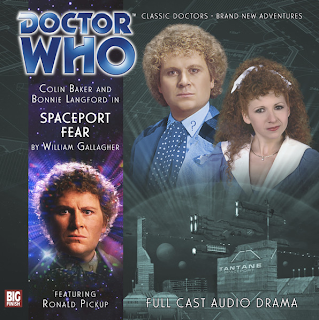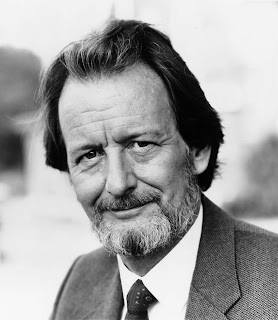Prince Toffee-Caramel looked out across the kingdom. It was a beautiful sight and he’d never really looked before – and he’d certainly never looked from way up here in a beanstalk.
The beanstalk swayed a bit.
The beautiful Princess Hard-Centre had boasted that she could throw the spinning wheel higher than anyone and she was right. But it had stuck in the beanstalk and Prince Toffee had leapt up to climb up it and get her back the spinning wheel.
He got stuck too. It was very high and he’d just eaten and it wasn’t fair. He gripped the beanstalk. He couldn’t look down. Far, far below, he could just make out the lovely, lyrical song of the princess as she sang “I don’t have all day, you know”.
And as he looked out across the white clouds and the blue sky, he thought he heard birds laughing.
Okay, he thought.
Nothing else came to mind. Just “Okay”.
He tried saying “Right!” but it came out a bit weedy.
“RIGHT!” he said. And as he said it, the gusto in his voice seemed to unlock his mind and he suddenly thought, just a minute, use what’s around you. Maybe not the laughing birds.
There was the beanstalk. It could bend and it could really sway but he wasn’t sure what else it could do. He wondered about breaking bits off but the beanstalk had grown from a seed to seven-mile high weed in thirty hours and you don’t do that with bits that can break off.
“Use the spinning wheel,” cooed the Princess. The wind snatched her words away: he wasn’t sure, did she say “darling” or “dumbass”? He decided it must be darling and, filled with vigour, verve and the kind of overwhelming love that everyone but him would recognise was just a bit of lust, he had the answer.
I’m going to use the spinning wheel, he decided. And he mentally slapped himself on the back for having such a brilliant idea. He tried actually slapping himself on the back but the beanstalk bent and the ground lurched and he thought twice about it.
Gripping onto the beanstalk until it steadied, Prince Toffee managed to look up to where the spinning wheel was just, just, just out of his reach.
He strained as hard as he could and his fingertip just, just, just made contact. It was the most he could do.
But unbalanced and straining, he again made the beanstalk lurch – seriously, how rubbish was this beanstalk? – and that tipped the wheel just a fraction and started it turning just a fraction and suddenly a line of the most beautiful golden thread was unfurling toward the Prince.
He held a strand and marvelled at its shimmering beauty and above-average tensile strength. When he had just enough to loop around his waist, the spinning wheel’s momentum stopped.
The prince gave a gentle tug and more strands appeared.
He looked at the thread.
He looked at the ground.
He looked out across the kingdom.
He nodded at a pigeon. How-do, he said. S’alright, said the pigeon.
And the Prince jumped.
Prince Toffee leapt away from the beanstalk and out, out, out across they sky, twisting his body to build on centrifugal force and pull out as much of the thread as was on the wheel.
Whump, he went through the air. Whump. Faster. Faster. Whump.
Whump, he went.
Whump-splat went the prince and pigeon. “Sorry!” said the Prince.
He reached his greatest possible acceleration and, judging that the thread was running out, he turned his body, angled his arms, set up a windflow over himself so that now he was turning downwards and his stored-up energy was turning into a dive. He was a prince, but he read a lot.
So now he dove for the ground like a bungee jumper.
The wind tore past him.
The ground waited.
The birds got out of the way. The rest of the birds, anyway.
The wheel span faster than it had ever spun before.
Until.
The thread reached its end, reached the lock on crunched end-stop and sent a snap of a wave down the line to the Prince.
For one crisp instant, Prince Toffee-Caramel was suspended above Princess Hard-Centre. She stood on tiptoe and kissed him for the perfect, pure moment that it was.
Then the end-stop broke, the wheel slipped an inch, the tension in the thread rang out like a harp string and the Prince was yanked back into the air.
He flew up, used his movement to turn his body and appeared to stand in mid-air before he sliced at the golden thread, cutting himself free and dropping to the ground like an athlete.
It was like an exquisite dismount from bars and as he stood up, straightening his knees and smiling his most rogueishly handsome smile, he knew he was greatest Prince in all the land. He knew he was in there.
“Truly, you are the greatest prince in all the land,” said Princess Hard-Centre. “And if I were looking for a husband who could earn us a living at a circus, you’d be in there.
“But it was actually my spinning wheel that I wanted. So could you sort that out? Is it too much to ask?”







